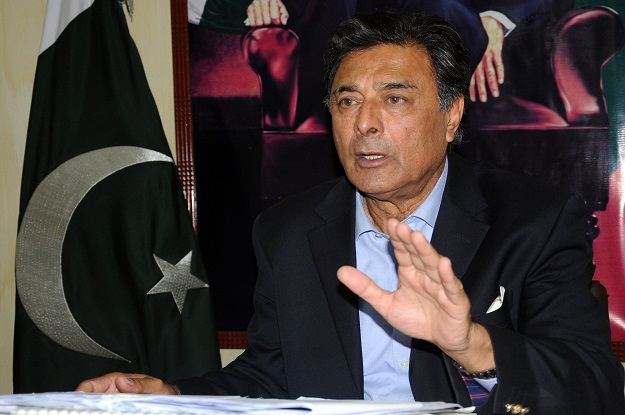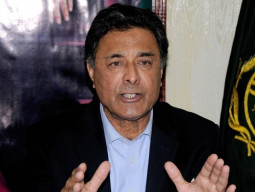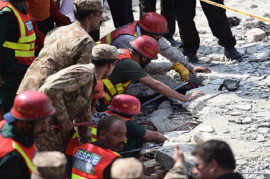
He had a lot on his agenda too. “I can’t disclose my eventual action plan to tackle religious extremist groups in southern Punjab,” he said. “My newly trained counterterrorism force is all set to dismantle the network of proscribed organisations in the province.”
As the captain of his team, he launched a crackdown on banned outfits under the National Action Plan (NAP).

He ordered the closure of 170 seminaries, most of which had been a major source of extremism and sectarianism in Punjab, said a senior official who worked with him. These seminaries were located in Jhang, Muzaffargarh, Layyah, Rajanpur, Dera Ghazi Khan, Kot Addu, Chiniot, Taunsa, Hasilpur and Vehari.
Read: Shuja Khanzada, the spearhead of Punjab's anti-terror movement
As Punjab took the lead in implementing the NAP, Khanzada also vowed to expedite his campaign against banned organisations – particularly Lashkar-e-Jhangvi (LeJ), Tehreek-e-Taliban Pakistan (TTP), Jamaatul Ahrar and Jaish-e-Mohammad – soon after LeJ chief Malik Ishaq was killed in a police encounter in Muzaffargarh on July 29.
“On the directives of the home minister, we were in the process of closing down all seminaries that fell under the ‘suspect’ category.”
“Using his intelligence experience, he froze an estimated Rs600 million of ‘doubtful’ funding of some madrasas after geo-tagging 13,800 seminaries across the province.”
The LEAs have picked up around 600,000 suspects since the NAP was implemented following the Army Public School massacre in Peshawar on December 14, 2014, he added.
Another official who worked with Khanzada said that with serious threats posed to his life, particularly after Ishaq’s killing, the home minister held a meeting with intelligence officials, who briefed him how the LeJ had established links with the Islamic State, TTP, Jamaatul Ahrar, Lashkar-e-Islam and other sectarian groups, planning to seek revenge with a ‘now or never’ bearing. “He was told that some of them had also established links with India.”
The official said the meeting was informed of a 13-member death squad that comprised al-Qaeda and LeJ militants and was tasked with eliminating all the officials involved in the crackdown on militants in the province. “Its infrastructure has existed in southern Punjab even before Ishaq’s killing.”
NAP may suffer setback
Brig (retd) Mahmood Shah, who served with Khanzada in the military, said it would be very difficult for the Punjab government to fill the vacuum in the ongoing operation against militants.
Rustam Shah Mohmand, a key member of the team that prepared the 20-point NAP, said Khanzada’s death had dealt a serious blow to the government’s efforts to tackle militancy in Punjab.
“The incident has left a big question mark on the NAP’s implementation in true spirit, particularly when it comes to eradicating sectarian militancy.” The government would have to dismantle the network of sectarian groups while considering all the relevant factors, he added.
A celebrated army man
Khanzada got commissioned in the military in 1967. During his career, he was awarded the Tamgha-e-Basalat for his services in the 1971 war.
Read: Khanzada’s martyrdom: PM, others express profound grief
He was also present at the Siachen Glacier in 1983, and was later posted as a military attaché at the Pakistani embassy in the US in the early ‘90s.
He is survived by a wife and three children.
Published in The Express Tribune, August 17th, 2015.





















1714034954-0/WhatsApp-Image-2024-04-25-at-1-48-04-PM-(1)1714034954-0-270x192.webp)
















COMMENTS (6)
Comments are moderated and generally will be posted if they are on-topic and not abusive.
For more information, please see our Comments FAQ